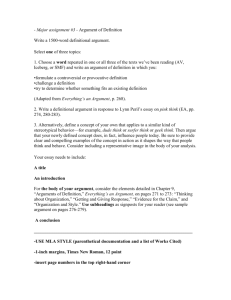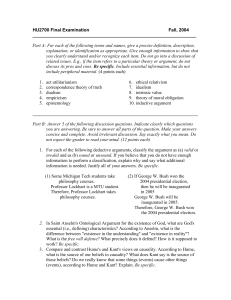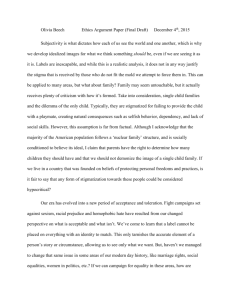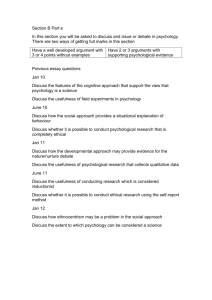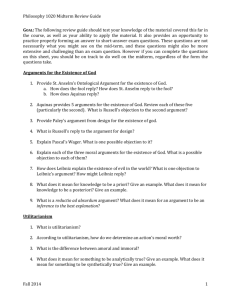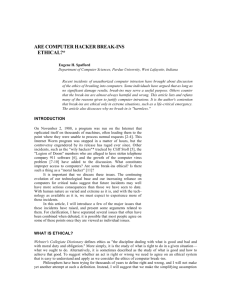Law/Ethics - Fall 2015 - Texas State University
advertisement
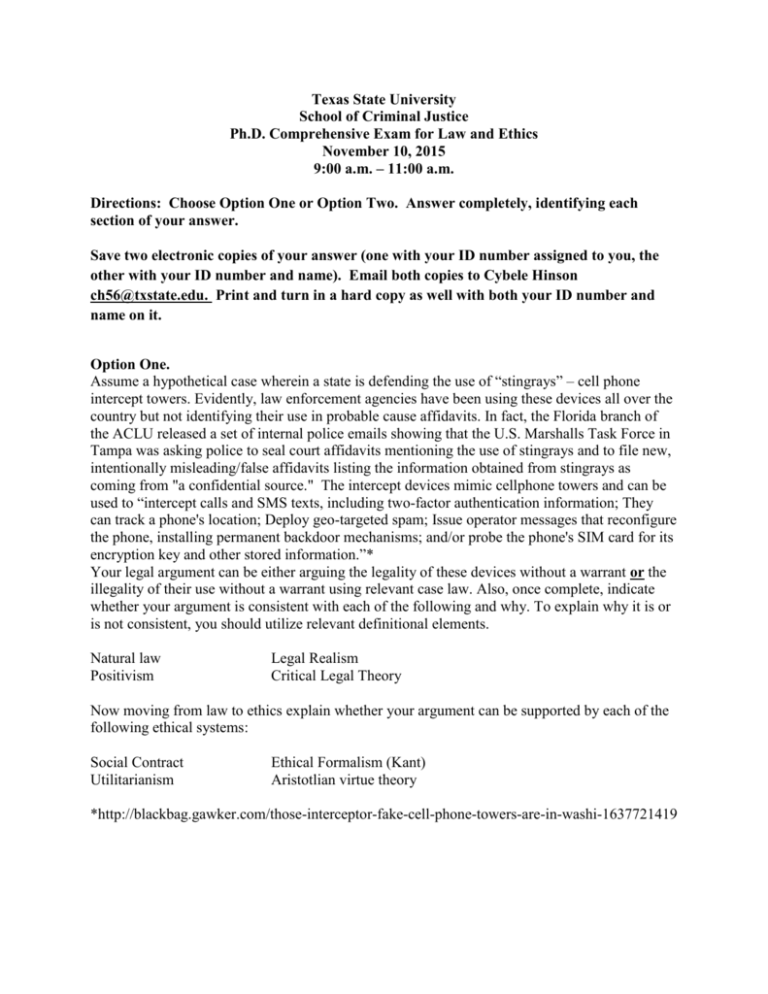
Texas State University School of Criminal Justice Ph.D. Comprehensive Exam for Law and Ethics November 10, 2015 9:00 a.m. – 11:00 a.m. Directions: Choose Option One or Option Two. Answer completely, identifying each section of your answer. Save two electronic copies of your answer (one with your ID number assigned to you, the other with your ID number and name). Email both copies to Cybele Hinson ch56@txstate.edu. Print and turn in a hard copy as well with both your ID number and name on it. Option One. Assume a hypothetical case wherein a state is defending the use of “stingrays” – cell phone intercept towers. Evidently, law enforcement agencies have been using these devices all over the country but not identifying their use in probable cause affidavits. In fact, the Florida branch of the ACLU released a set of internal police emails showing that the U.S. Marshalls Task Force in Tampa was asking police to seal court affidavits mentioning the use of stingrays and to file new, intentionally misleading/false affidavits listing the information obtained from stingrays as coming from "a confidential source." The intercept devices mimic cellphone towers and can be used to “intercept calls and SMS texts, including two-factor authentication information; They can track a phone's location; Deploy geo-targeted spam; Issue operator messages that reconfigure the phone, installing permanent backdoor mechanisms; and/or probe the phone's SIM card for its encryption key and other stored information.”* Your legal argument can be either arguing the legality of these devices without a warrant or the illegality of their use without a warrant using relevant case law. Also, once complete, indicate whether your argument is consistent with each of the following and why. To explain why it is or is not consistent, you should utilize relevant definitional elements. Natural law Positivism Legal Realism Critical Legal Theory Now moving from law to ethics explain whether your argument can be supported by each of the following ethical systems: Social Contract Utilitarianism Ethical Formalism (Kant) Aristotlian virtue theory *http://blackbag.gawker.com/those-interceptor-fake-cell-phone-towers-are-in-washi-1637721419 Option Two. 2. Assume a hypothetical case wherein a state is the appellee in a case where a man is suing to be able to have several legal wives. The case is before the Supreme Court with a variety of advocacy groups on both sides of the argument. Lay out the argument for or against the legal argument that the state must recognize polygamy using relevant case law. Now explain whether your argument is consistent with each of the following legal philosophies and why. Natural law Positivism Legal Realism Critical Legal Theory Now moving from law to ethics explain whether your argument is consistent with each of the following ethical systems. (For both legal philosophies and ethical systems, make sure you provide definitional elements to illustrate your understanding of the concepts). Social Contract Utilitarianism Ethical Formalism (Kant) Aristotlian virtue theory

